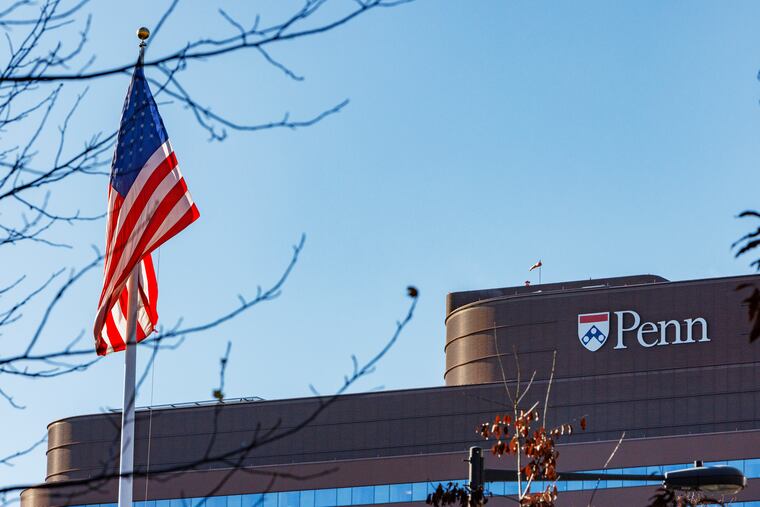Penn to expand its full-tuition scholarship aid to families with a higher income threshold
Families with typical assets and incomes of $200,000 - up from $140,000 - will be eligible for full tuition scholarships.

The University of Pennsylvania said Tuesday it will expand full-tuition scholarships to families with typical assets and incomes of $200,000 — up from $140,000 — and no longer consider the primary family home as an asset in its calculation for institutional aid.
About 900 more students are expected to receive additional aid as a result of Penn’s exclusion of the primary family home from consideration, Penn said, with a $4,000 average increase in grant aid. And Penn said the higher income threshold would increase aid by an average of $10,000 for an additional 180 students.
» READ MORE: Penn raises tuition, other costs 4%, while expanding full financial aid to more families
Stanford and Harvard Universities and the Massachusetts Institute of Technology are among other schools that have removed consideration of home equity from their aid calculation, according to Higher Ed Dive. Others include Princeton University, the University of Chicago, and the University of Southern California, according to WealthManagement.com.
The change, which Penn dubbed the Quaker Commitment, will take effect for the 2025-26 academic year and will be open to all qualifying undergraduates, not just first-year students. The school said it was responding to the needs of middle- and upper-middle-income families.
“This bold new initiative expands financial aid for more families in alignment with our commitment to have Penn’s financial aid package meet 100% of families’ demonstrated need with no loans,” interim Penn president J. Larry Jameson said in a statement.
Elaine Papas Varas, senior university director of student financial aid, said Penn will continue its strong support of students from low-income families but now also will expand that effort to help middle-class families.
“We need to do more,” she said. “We need to do better, particularly when education is so expensive. … There’s no reason to penalize families for owning a home if they are living paycheck to paycheck. We shouldn’t be asking for home value to pay for their education.”
The new effort is expected to cost Penn $6 million annually, the school said. The total cost to attend Penn this academic year is $84,600.
The Ivy League university in March 2023 announced an expansion of its full aid program, covering all tuition, fees, and room and board. Starting with the 2023-24 academic year, the school extended eligibility to families who make less than $75,000 with “typical assets” — the threshold had been $65,500. Penn also is providing students in that group with summer internships, tuition and research funding, stipends for food during Thanksgiving and winter breaks when dining halls are closed, graduation regalia, and grant funding to cover the cost of Penn’s health insurance plan. And it is giving first-year students a laptop.
With that increased income threshold, Penn said, more than 1,200 students would qualify for the full aid.
At Penn, 46% of the 10,000 undergraduates receive aid with an average package of $70,579, more than three-quarters of the total cost to attend Penn.